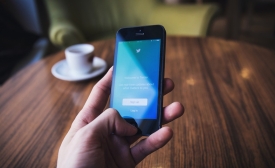social media
As the Tweeting-Diplomat-in-Chief, U.S. President Donald Trump is transforming digital diplomacy — the leveraging of online communication technologies to pursue foreign policy. What used to be thought of as an opportunity to move diplomacy out of inter-governmental back rooms to a more robust and transparent basis of digitally enabled engagement of stakeholders seems to be getting dragged into the locker room of narcissistic posturing.
At the embassy level, ambassadors may be viewed as digital gatekeepers. Studies have shown that embassies headed by ambassadors who view digital platforms as an important resource are likely to be active online and to utilize digital tools in innovative ways. Conversely, embassies headed by ambassadors who view digital platforms as a risk are likely to be inactive online.

Ilan Manor on the historical relationship between diplomacy and technology, and how it can help a world in crisis.
The UAE has more open communication with its citizens than people abroad realise, acording to a senior adviser at the Emirates Diplomatic Academy. Tom Fletcher, former British ambassador to Lebanon, said there was a perception in the West that the region was a more "closed world". [...] He said social media had proven efficient in terms of crisis management because "you can move the dial more quickly".
Sitting in my bedroom, 200 miles from Aleppo, social media makes it easier than ever to spectate the atrocities of the civil war. But has social media changed the reality of organising a protest on the ground? [...] There are a small number of major competitors for protest organisation platforms. Facebook, of course, has cornered the market. Twitter also plays a role.







